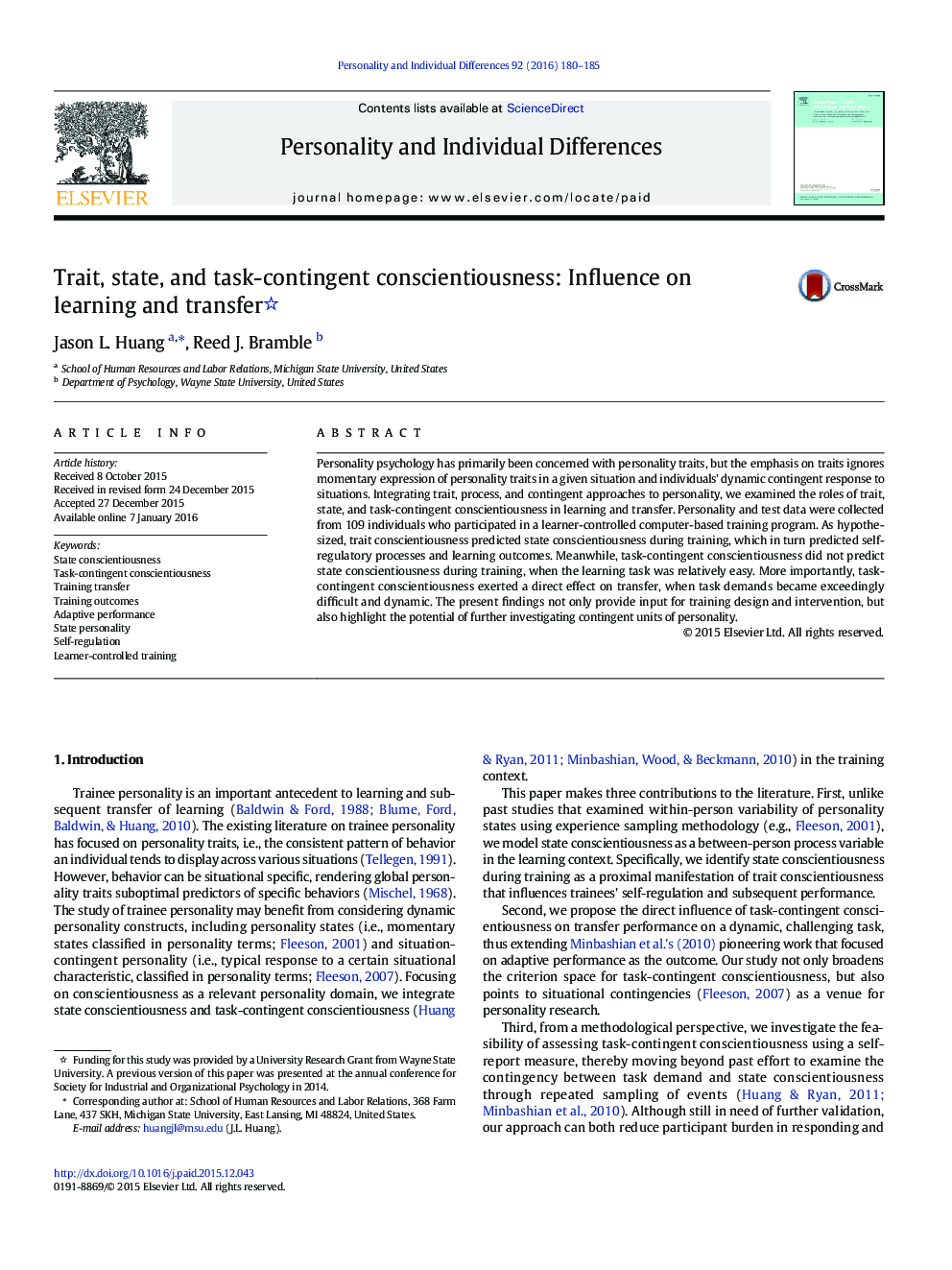| Article ID | Journal | Published Year | Pages | File Type |
|---|---|---|---|---|
| 889807 | Personality and Individual Differences | 2016 | 6 Pages |
•We examined trait, state, and task-contingent conscientiousness in a learning context.•Trait conscientiousness predicted state conscientiousness during learning.•State conscientiousness predicted effort and attention during learning.•Task-contingent conscientiousness predicted transfer in a dynamic task environment.
Personality psychology has primarily been concerned with personality traits, but the emphasis on traits ignores momentary expression of personality traits in a given situation and individuals' dynamic contingent response to situations. Integrating trait, process, and contingent approaches to personality, we examined the roles of trait, state, and task-contingent conscientiousness in learning and transfer. Personality and test data were collected from 109 individuals who participated in a learner-controlled computer-based training program. As hypothesized, trait conscientiousness predicted state conscientiousness during training, which in turn predicted self-regulatory processes and learning outcomes. Meanwhile, task-contingent conscientiousness did not predict state conscientiousness during training, when the learning task was relatively easy. More importantly, task-contingent conscientiousness exerted a direct effect on transfer, when task demands became exceedingly difficult and dynamic. The present findings not only provide input for training design and intervention, but also highlight the potential of further investigating contingent units of personality.
